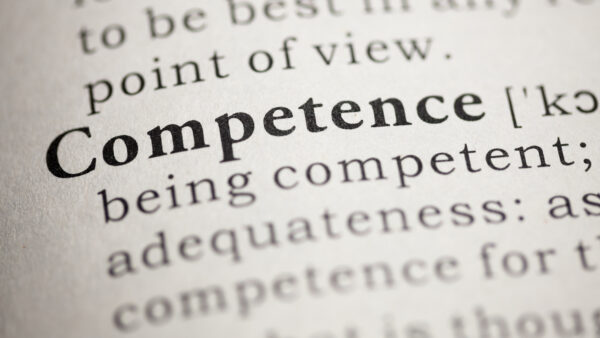Even if there’s only a 1% chance of a claim against you, it could be time to notify your professional indemnity insurer, says loss adjuster Bob Paterson.

Bob Paterson
Most construction professionals, whether they are self-employed or employed by a consultant practice, contractor or subcontractor, are aware of the requirement for the individual or business to have professional indemnity (PI) insurance.
For contractors and subcontractors, the essence of a Design & Construct (D&C) is the responsibility for both the design and construction of the works, and PI insurance is essential to provide cover for losses arising out of a professional error in the design or specification of the works.
PI insurance is a liability policy aimed at protecting a policyholder against their legal liability for damages sustained by a claimant arising out of an error in the professional services provided. A key aspect of all PI insurance policies is that they are written on a “claims made” basis, which means that it is the policy in force at the time the claim is first made against the policyholder and notified to the insurer which should respond, rather than when the alleged negligent act, error or omission occurred.
Where there has been no previous PI insurance, a Retroactive Cover Exclusion can be applied to exclude the consequences of any such acts, errors or omissions committed prior to the inception of the policy.
The terms, conditions and exclusions of the PI policy place a great emphasis on the timely notification by the policyholder of a claim or circumstance. Failure to notify in accordance with the policy conditions may entitle the insurer to decline the claim. And if the failure to notify a pre-renewal event occurs after the policy has been renewed, insurers may avoid the policy altogether, although many policies do contain an “innocent non-disclosure” clause. PI policies tend to be renewed on an annual basis but it should not be assumed that, even with the same insurer, a claim will be dealt with if it has not been notified in the same policy year as it was made.
When to notify?
In construction, a formal claim relating to a dispute or problem might not be made against a policyholder immediately and if a D&C contractor complies with their contractual obligation to rectify a defect in the works, a claim may never materialise. Most PI policies written for D&C contractors allow for this within the insuring clause by providing a supplemental mitigation of loss clause to cover costs and expenses in mitigating a claim or potential claim which would otherwise be covered under the policy. This clause is subject to certain conditions, most notably that the prior consent of insurers is required.
Even where no claim has been made, a policyholder will be required to notify a “Circumstance”, the meaning of which is usually defined in the policy. These definitions can vary from the discovery of a circumstance which “might” lead to a claim against you, to “may”, “could” or “likely to”, the interpretation of which can be, say, from a 1% chance to a 51% chance of a claim being made. There are no hard and fast rules as to what should be notified and it depends on all the facts within the policyholder’s knowledge at the time.
A common misconception that we regularly come across is that the policyholder does not notify their own insurers because they do not believe they are liable for the allegations against them. I know of no policy that contains this exception to notification, and some policies even spell out “whether you think you are liable or not”.
For senior construction or commercial managers who are responsible for notifying these matters to their broker or insurer, it is important that they are informed by their subordinates of a potential notification as soon as possible, particularly if this occurs close to the renewal date.
How long do I have to notify?
This will be set out in the notification condition of the policy and can be a “condition precedent”, which means that if you don’t comply, insurers can deny cover. Policy wordings vary, although it is rare (but not unknown) to specify an actual timeframe. The most onerous requirement we have come across is notification within 14 days, but most policies require the notification of a claim or circumstance to be made “immediately”, “promptly”, “as soon as possible”, or “as soon as practicable”.
An insurer may apply a different interpretation depending on the extent of the delay and the nature and extent of the problem notified. Most insurers allow a few weeks, rather than a few days, but it is prudent to notify as soon as possible and follow it up with further details when available.
Construction PI claims generally require extensive technical enquiries to establish what has gone wrong, who may be responsible, whether there is an effective insurance policy that may cover the liability or loss, what immediate steps need to be taken and whether there is a cost effective solution.
A construction manager or professional who becomes aware of a problem should speak to their broker in the first instance, who will then be able to advise if the matter should be notified and under what policy. Once notification is received, this will allow an insurer to decide whether the appointment of an adjuster or solicitor is required.
Bob Paterson is a chartered civil engineer and loss adjuster and director of Walsh PI, part of the Triton Global Group which specialises in the defence and handling of professional indemnity claims








